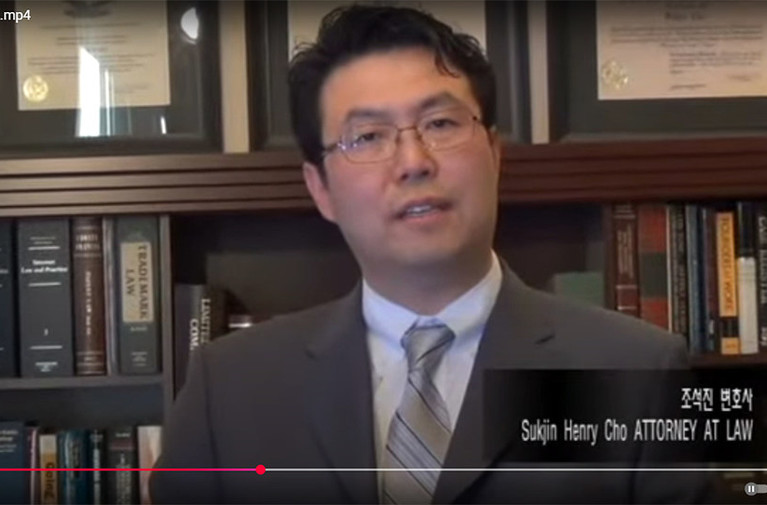Pressed for Time, Lawyer Misuses AI in Federal Court Filing
By Sam Michael
Racing against a tight deadline, a New Jersey attorney turned to artificial intelligence for a quick fix—and it backfired spectacularly, landing him a $3,000 fine for submitting bogus case citations to a federal judge. This AI misuse in legal practice highlights the growing pitfalls of generative tools in high-stakes courtrooms, where speed can trump scrutiny.
In a ruling that echoes a wave of similar blunders, U.S. District Judge Jose R. Almonte sanctioned Sukjin Henry Cho, a Fort Lee-based lawyer, on September 18, 2025, for relying on AI-generated content riddled with errors. Cho’s case underscores the urgent need for diligence in AI legal research, as courts crack down on hallucinations—fabricated facts spat out by tools like ChatGPT. With AI ethics in law now a trending concern, this incident serves as a stark warning for attorneys nationwide.
The Blunder: How AI Hallucinations Infiltrated the Courtroom
Cho faced intense pressure in a civil dispute before the U.S. District Court for the District of New Jersey. Pressed for time, he used an unnamed generative AI tool to draft parts of his legal brief. The output included citations to nonexistent cases and mangled quotes from real ones—classic signs of AI hallucinations.
Opposing counsel quickly flagged the issues during oral arguments. Judge Almonte, in his 12-page opinion, described the errors as “negligent” but not malicious. He noted that Cho failed to verify the AI’s work, a basic step that could have prevented the fiasco. “The submission of AI-generated content without proper review undermines the integrity of the judicial process,” Almonte wrote.
Cho admitted the mistake promptly, apologizing in open court and vowing to implement safeguards like human double-checks and AI-specific training. These steps swayed the judge to impose a lighter penalty—$3,000, the low end of a $1,000 to $6,000 range cited from prior cases.
A Pattern of AI Missteps in U.S. Courts
This isn’t an isolated slip-up. Courts across the country are grappling with AI misuse in legal practice. Just last month, lawyers for MyPillow CEO Mike Lindell drew $3,000 fines each for a filing packed with fictional cases generated by AI. In California, attorney Amir Mostafavi shelled out $10,000 after ChatGPT fabricated 21 of 23 citations in an employment appeal.
Even big firms aren’t immune. In February 2025, three attorneys from Morgan & Morgan faced sanctions—$3,000 for the drafter and $1,000 each for filers—after AI invented eight out of nine cited cases in motions. And in Utah, lawyer Richard Bednar paid fees and donated $1,000 to a legal aid group for citing a nonexistent case via ChatGPT.
Legal experts point to a common thread: time crunches. “Attorneys are under immense pressure to deliver fast, but AI isn’t a shortcut—it’s a tool that demands verification,” says Maura Grossman, a University of Waterloo professor and AI ethics specialist. Public reactions on platforms like LinkedIn echo this, with one viral post calling it “a $3,000 lesson in why ‘trust but verify’ applies to bots too.”
Why This Matters to American Professionals and Clients
For U.S. readers—whether lawyers, business owners, or everyday litigants—this saga hits close to home. AI legal research promises efficiency, but unchecked use erodes trust in the justice system. Economically, it could hike costs: Sanctions like Cho’s get passed to clients via higher fees, straining small firms and solo practitioners already squeezed by rising malpractice premiums.
On the lifestyle front, the pressure cooker of deadlines fuels burnout. A 2025 American Bar Association survey found 60% of attorneys feel overwhelmed by caseloads, pushing more toward AI crutches. Politically, it sparks debates on regulation. California lawmakers are eyeing bills for AI disclosure rules in filings, while federal courts mull uniform guidelines. Technologically, it accelerates adoption of “AI guardrails”—software that flags hallucinations—potentially reshaping legal tech startups.
User intent drives searches like this: Lawyers seek compliance tips, clients want assurance of accuracy, and tech enthusiasts track AI ethics in law. Geo-targeting U.S. audiences, note that New Jersey’s ruling aligns with trends in high-volume districts like the Southern District of New York. AI tracking? Courts now scrutinize filings for patterns, using tools to detect generative text— a double-edged sword for efficiency.
One silver lining: These cases educate. Cho’s remorse and reform pledge model accountability, urging firms to train staff on AI best practices.
Broader Ramifications: From Courtrooms to Capitol Hill
The fallout extends beyond fines. Repeated incidents could prompt stricter rules, like mandatory AI disclosures in briefs, mirroring medical disclosure laws. For sports fans? Even adjacent fields feel it—AI-drafted contracts in athlete deals have sparked disputes over fabricated precedents.
Experts warn of “wreckages” ahead without intervention. “We’re shoving AI down professionals’ throats without grappling with consequences,” notes one California observer. Reactions from bar associations call for ethics CLEs focused on generative AI risks.
Conclusion: A Costly Wake-Up Call for Smarter AI Use
Sukjin Henry Cho’s $3,000 sanction for AI misuse in legal practice crystallizes a pivotal moment: Technology accelerates lawyering, but only if wielded wisely. As courts impose deterrents and attorneys adapt, expect a future of hybrid workflows—AI as aide, not autopilot.
Looking ahead, 2026 could see federal AI guidelines emerge, curbing hallucinations while boosting verified tools. For now, the lesson rings clear: In the rush of deadlines, pause for proof. Your career—and the court’s credibility—depends on it.
AI misuse in legal practice, lawyer AI fine, AI hallucinations court, generative AI legal ethics, fake case citations AI, New Jersey lawyer sanction, ChatGPT court blunder, AI legal research risks, attorney AI penalties, US court AI regulations
